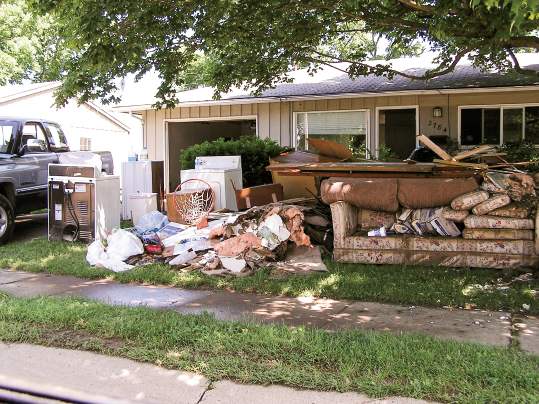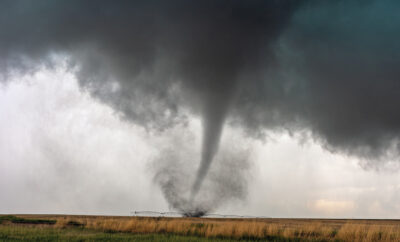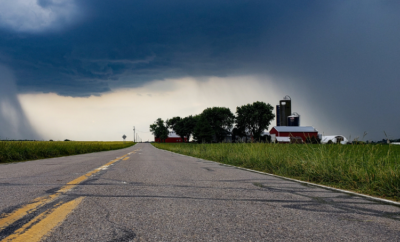Flood Warning

December 2013 through February 2014 brought the snowiest winter Indiana has ever seen. The saturated ground and excessive snow levels led to spring flooding, but the risk of flooding is not confined to the spring. Indiana is prone to flooding all year long, even during the summer months.
A flood is categorized as any occurrence when water escapes its natural boundary, whether a pond, creek, lake or drainage ditch. And it doesn’t take much.
“Only one inch of water in your home can cause costly damage to your property,” says Rick Ainsworth, property & casualty manager, relations and staff development.
Standard homeowners policies, including those issued by Indiana Farm Bureau Insurance, do not cover flood damage. Though this is stated on the policy jacket and as a notice attached to the policy’s declarations, this still catches people by surprise.
Only about one Hoosier property in a hundred is protected by flood insurance, a statistic reflected by Indiana Farm Bureau Insurance policyholders.
If you live in a designated floodplain, flood insurance is required for most mortgages. However, it is still available if you’re not in a designated area. According to the Federal Emergency Management Administration (FEMA), one third of all flood claims paid last year occurred in low-risk communities.
“Just because your mortgage company doesn’t require flood insurance doesn’t mean you’re safe from a flood,” Ainsworth says. “You have to ask yourself, if my home flooded, would I be able to pay the losses from my own funds?”
Property owners can turn to the National Flood Insurance Program (NFIP) to purchase flood insurance. Created by Congress in 1968, NFIP provides coverage for property damage, structural and mechanical damage, content damage and debris removal. The policy can compensate property owners even if federal disaster aid is not available.
Another common water hazard to homes is loss due to water incursion from sewers or drains, or water backing up or overflowing from a sump pump. Indiana Farm Bureau Insurance offers the “water backup and sump overflow” endorsement to provide coverage in the event a sump pump fails or water backs up through sewers or drains. The standard homeowners policy does not cover these losses.
“The endorsement is relatively inexpensive and has a variety of coverage ranges available,” Ainsworth says. “Much like flood insurance, you have to ask yourself if it is worth the risk of having to pay out-of-pocket for all the damage sustained if your basement fills with water.”
“It does happen in Indiana every year,” says Brandon McIntire, property specialist. “We have a few days of heavy rains, and a neighborhood that has never flooded has several basements with water in them. It simply isn’t worth the risk.”
The reduced threat of flooding in summer is a great opportunity to conduct a home inventory and discuss with your agent what coverage you do need. A policy purchased through the NFIP will not be in effect for 30 days. And when a flood warning has been issued, the endorsements available through Indiana Farm Bureau Insurance will not be available for a period of 30 days after the warning has been lifted.
“You don’t want to wait until it’s too late to get coverage,” McIntire says. “Have a conversation with your agent about what you need to keep your home and belongings protected.”
Your Indiana Farm Bureau Insurance agent is able to assist you in purchasing insurance through the NFIP. Your agent can also discuss your specific needs to determine if the Water Backup and Sump Overflow Endorsement is an appropriate coverage for you. Find your agent at infarmbureau.com.













 My Indiana Home is produced for Indiana Farm Bureau members. Our mission is to connect you with the food you eat, the Indiana farmers who grow it and a rural lifestyle that is uniquely Hoosier.
My Indiana Home is produced for Indiana Farm Bureau members. Our mission is to connect you with the food you eat, the Indiana farmers who grow it and a rural lifestyle that is uniquely Hoosier.
Leave a Comment